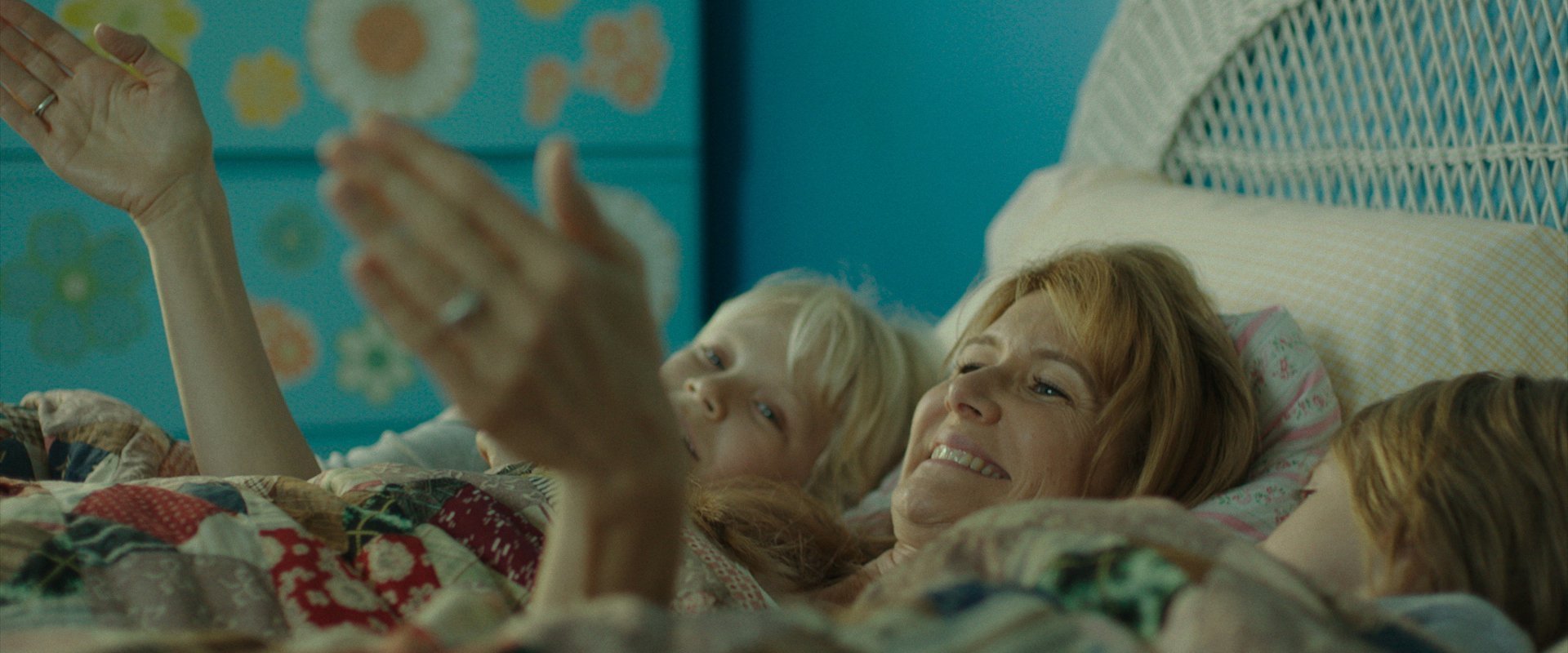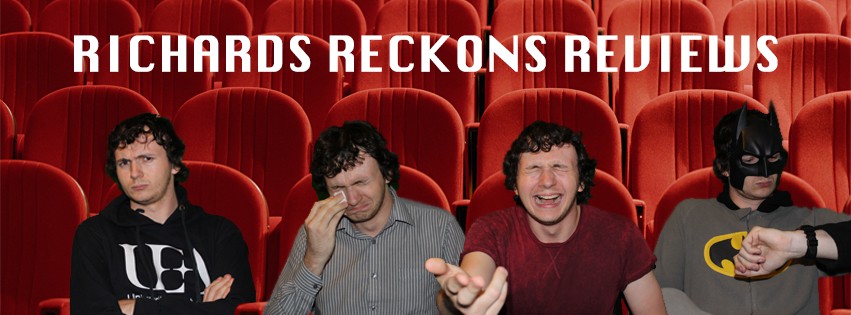A drummer, a robot, a sniper and, er, Reese Witherspoon. It’s like a dream A-Team lineup. But it is not a dream A-Team lineup; nay, it is a Richards Reckons post. Let the reckoning commence!
Let’s start with Whiplash.

No no, not that one, THIS one.

Whiplash tells the tale of Andrew Neiman (Miles “Bank” Teller), a young up and coming jazz drummer studying at (the rather confusingly named) Shaffer Conservatory; the best music school in the US. He doesn’t have any friends and is utterly dedicated to (and isolated by) his desire to become “one of the greats”, like his idols Buddy Rich or Charlie Parker. He gets noticed by Terence Fletcher (J.K. Simmons), an esteemed conductor at Shaffer who has his own core band. Andrew gets invited into the group, but quickly discovers Fletcher’s tyrannical, almost sadistic method of pushing his students, and proceeds to be treated horrendously by Fletcher. But will his methods push him to greatness, or over the edge?

The film is an Oscar contender, and it’s not hard to see why. Even though it’s dancing around the subject of music, Whiplash is more tense, exhilarating and electrifying than most action thriller films based around violence. This is a movie that contains blood, sweat and tears in its very bones; mainly from Miles, admittedly, but all three trickle through the film like blood in its veins (its veins and its bones… wait, this metaphor/simile combo has confused even me). Its tense and utterly gripping feel is down to its basic question; how far should you push somebody in order to achieve greatness? It’s a question that is framed by music here but is applicable throughout most endeavours, and that’s why it resonates so highly with everybody who witnesses it.

While Miles Teller plays Neiman very well as a cagey, defensive and determined prodigy whose aggression and determination mounts over the course of the film, this is really J.K. Simmons’ show. Every single movement he makes as Fletcher, whether it’s folding his arms or grabbing the air to indicate he wants silence, is utterly mesmerizing – he electrifies the screen whenever he is on it, in a terrifying way. When he gets, as the kids say, right up in Neiman’s ‘bidness’, it’s as scary for us as it is for him – his booming voice and craggy face dominating and commanding the frame. For all his fiery anger, when Fletcher needs to show some kind of sadness Simmons shows real depth without giving the facade away. If that supporting actor Oscar isn’t his, then the Oscars should be branded a joke (especially in conjunction with The LEGO Movie debacle – it still angers me, even now. I may need to have a lie down).

Damien Chazelle directs the film magnificently, creating the perfect marriage between thunderous sound and vision; it’s also incredibly well edited, especially at the film’s thrilling crescendo; it feels like there’s a cut at every snare hit, and not in a disorientating way. Whiplash is a chair-throwing, hand-bleeding, sweat-leaking force of nature to be reckoned with, and you’ll never see another film quite like it. It’s genuinely brilliant.
From E-notes to E-lectronics now (sorry), it’s time for Ex Machina.

Ex Machina is a science fiction film following Caleb (Domhnall Gleeson), a young programmer who works for the largest search engine in the world, ‘Bluebook’. He wins a lottery in his workplace to go and meet his mysterious CEO employer Nathan (Oscar Isaac) in his very, very remote island home. But after signing a document which forbids him from ever speaking about what he is going to see while he is there, Caleb catches on that something bigger is perhaps happening here; and that’s when he meets Ava (Alicia Vikander), a walking, talking new kind of AI. Nathan wants Caleb to find out whether or not this new form of AI has its own consciousness or not – leading to a particularly sinister series of events.

This is Alex Garland’s directorial debut after writing screenplays and novels, including for Danny Boyle features 28 Days Later, The Beach & Sunshine. There’s certainly a Boyle flavour to this film; it’s very stylish and focussed on character, but still retains a high concept while being clever about it. It’s a small film primarily with three people set in one location – at times, it almost plays like a play. While it perhaps isn’t an action packed science fiction adventure, it is never boring – there are lots of deep, philosophical conversations going on about life itself and what makes someone, or something, alive, and the moral implications of that.

Isaac plays his strange hideaway genius with a glazed look in his eye and a strange rock’n’roll swagger like a mix between a rockstar and Mark Zuckerberg; Gleeson shows the genius of his character sparingly while retaining the warmth he is known for; Vikander plays her android Ava surprisingly quite fluidly (in comparison to the normal “I am a robot” impression some others do), with a strange level of curiosity and seduction – indeed, she looks bizarrely beautiful thanks to the impeccable CG work on her body. The three main (and pretty much only) players perform their roles with gusto, adding credibility to the admittedly high concept. The slick writing does this too, with surprisingly funny riffs on modern computer culture and its capabilities, as well as a couple of “oh well I did [this clever thing] BEFORE you did [this clever thing]” twists in there for good measure.

Ex Machina is a clever, brainy slice of science fiction that’s elevated by a clever script and some good performances from some of Hollywood’s rising stars. If you like your sci-fi and brainy debates about artificial intelligence then seek it out; it’s soon to be a cult classic.
Next up, American Sniper.

American Sniper, stay away from mee-heeeeee. It’s unfortunately not an adaptation of the song American Woman by The Guess Who, but instead it follows the true life story of the deadliest marksman in US military history – Chris Kyle, played by Bradley “Rocket Raccoon” Cooper. It follows some of his life from when he was a young boy up until his adulthood when he decides to join the military, and is subsequently deployed to Iraq after the 9/11 attacks. It follows his relationship with his wife (Sienna Miller) as well as his subsequent four tours of Iraq and his various firefights with Iraqi insurgents and the Taliban.

The film is directed by Clint Eastwood, after originally being optioned by Steven Spielberg. The film and its team surrounding it have been nominated for Oscars including Best Picture, Best Adapted Screenplay, Best Editing and Best Actor…

And I have absolutely no idea why.
I mean, don’t get me wrong, it’s not a bad film. It’s for the most part a well shot, well orchestrated war movie. I just don’t feel it’s anywhere near special enough to warrant so many accolades; it feels incredibly generic, in some respects. It’s also (and judging by the internet I don’t think this was just me) uncomfortably jingoistic and patriotic at times – to the point that I was surprised he wasn’t given Captain America’s shield. The characters in the film gleefully describe all Iraqi people as “savages”; in some respects at times it genuinely feels like an extremely old fashioned Western film in which the entire Iraqi people (not just the Taliban insurgents) are in place of the “Indians”. It’s interesting that Spielberg was going to focus on the Iraqi people’s point of view as it could have perhaps avoided this issue altogether.

That said, there are some thrilling aspects to the film, including the tension from the trailer and the mile-long shot towards the climax of the film. It perhaps does not focus on Kyle’s PTSD/addiction to war as much as it could have (including some relationship ultimatums that are made and then broken), or indeed should have to humanise him a bit more. Bradley Cooper does the best that he can in the role, playing it very understated with a low Texan drawl, but there are not any glimpses of his trademark charisma – this is because he is portraying a real life person, perhaps, and wished to remain respectful, but even so. It also has the most fake baby in the history of cinema.

As I said, American Sniper is not a bad film. It has some areas of tension that most action films would beg for. The problem is that at times it feels a bit too bland to be deserving all the praise that is layered upon it. Eastwood doesn’t bring anything that is distinctly his to the table here, either – it feels like it could have been directed by anybody. Apparently it has been heralded in America and it’s not hard to see why as it’s so ardent in its patriotism – but for everywhere else, it may be a tough swallow.
Finally, let’s get Wild.

Wild tells the real life story of Cheryl Strayed (Reese “She Eats” Witherspoon) who hikes the Pacific Crest Trail (1000+ miles) as her way of dealing with the death of her mother (Laura Dern), as well as years of destructive behaviour. She reflects on her life as she comes across other ramblers and through the trials and tribulations of rambling alone.

Wild is told in a surprisingly avant garde way – though it follows the linear narrative of Cheryl’s walkabout, we jump in and out of parts of her life in a very ethereal way like we’re galloping through a time portal, following her own mindset as she walks on her own. We have touching memories with her mother, her ex-boyfriend and her troubles with drug addiction all coming to her in waves as she makes this massive trek, making us feel like we are inside her head; and what a place it is to be. Reese Witherspoon’s performance is amazingly raw yet defined here; she’s in almost every single frame, so the whole film rides on her essentially. She plays Strayed with strength and occasional vulnerability through physicality; she feels like a flawed inspirational figure the whole way through the film.

Some may feel it is long, but it’s a story about reflecting upon yourself through long periods of time, so it’s almost allowed that. With its non-traditional narrative stylings and flourishes, Wild won’t be for everybody, but people will relish the cinematography and stunning central performances by Reese Witherspoon and the graciously strong Laura Dern, leading to moving moments of triumph on her journey.
No fake baby though…

















